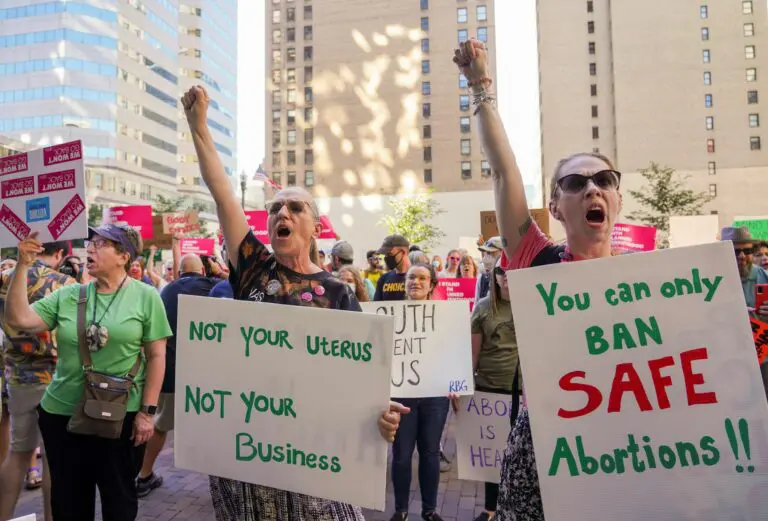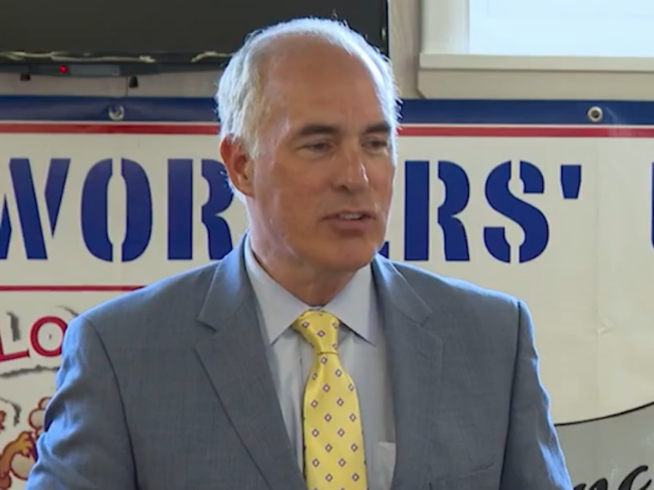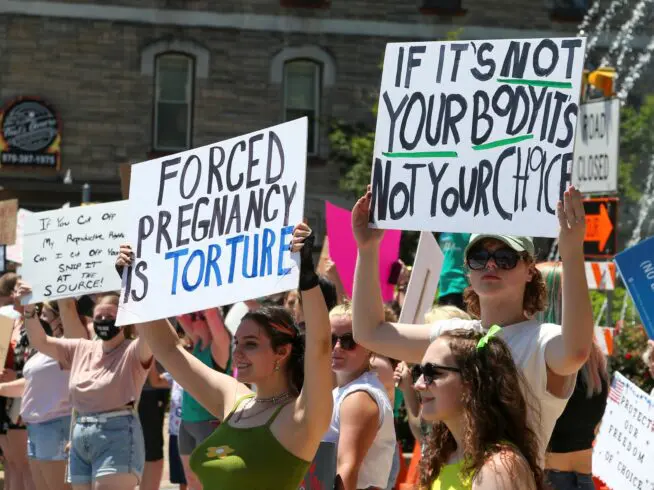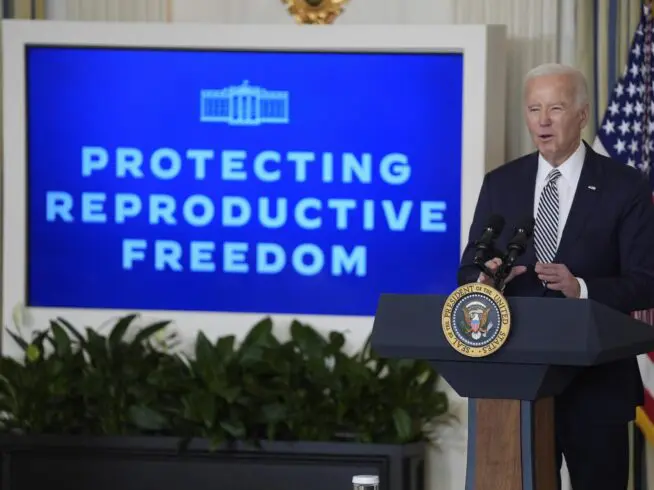How a law from 1873 could end abortion access in every state
David Cohen, a professor at Drexel University Kline School of Law, said the Comstock Act is the ‘No.1 threat to abortion nationwide.’

Abortion is legal in Pennsylvania through the 23rd week of pregnancy. However, a federal law dating back to the late 19th century remains a threat to abortion across the nation — even in states where access has been protected.
Those who are deeply committed to the anti-abortion movement have made it clear they would not hesitate to use the Comstock Act to ban medical abortions.
The act, which was made part of the U.S. Code in 1873, criminalizes the mailing of “Every obscene, lewd, lascivious, indecent, filthy or vile article, matter, thing, device, or substance; and— Every article or thing designed, adapted, or intended for producing abortion, or for any indecent or immoral use.” The punishment for violation of the law is a fine, imprisonment for up to five years or both.
In “Mandate for Leadership: The Conservative Promise,” a plan for a second Donald Trump presidency also referred to as “Project 2025,” conservatives outline their priorities for a potential return to the White House. Page 562 of the 920-page document briefly refers to a plan to use the U.S. Code to criminalize abortion federally:
“Announcing a Campaign to Enforce the Criminal Prohibitions in 18 U.S.Code §§ 1461 and 1462 Against Providers and Distributors of Abortion Pills That Use the Mail. Federal law prohibits mailing ‘[e]very article, instrument, substance, drug, medicine, or thing which is advertised or described in a manner calculated to lead another to use or apply it for producing abortion.’ Following the Supreme Court’s decision in Dobbs, there is now no federal prohibition on the enforcement of this statute. The Department of Justice in the next conservative Administration should therefore announce its intent to enforce federal law against providers and distributors of such pills.”
“I think this is the No. 1 threat to abortion nationwide right now, is the looming possibility of a Republican administration enforcing Comstock Act in this way,” David Cohen, a professor of law at Drexel University Thomas R. Kline School of Law, told the Pennsylvania Independent. “Because all of the other threats are sort of piecemeal — a particular state, a particular method, a particular context for abortion, all of them serious but limited. Comstock, at least the interpretation that many people in the anti-abortion movement are putting forth, would in effect shut down all abortion, in every state, every type, every context.”
Adam Hosey, the policy and political director of Planned Parenthood of Pennsylvania, told the Pennsylvania Independent that if Trump wins in November and he revives enforcement of the Comstock Act, people would lose access to mail-order abortion pills, birth control, and even adult toys.
“We do mail pills in Pennsylvania. Folks who are just doing management at home, self-managed abortion through medication abortion, they would no longer be able to access the health care that they need and are achieving either,” Hosey said.
The law was named after Anthony Comstock, an anti-vice zealot who worked with the Young Men’s Christian Association in the 1800s at a time when women did not have the right to vote; when Ulysses S. Grant was serving as the 18th U.S. president; mail was delivered by horse and wagon if it was delivered at all; and the discovery of penicillin was half a century in the future.
The Comstock Act has remained on the books but has not been applied to abortifacients since the 1973 U.S. Supreme Court ruling in Roe v. Wade established a constitutional right to abortion. The law was recently spotlighted when the Supreme Court heard oral arguments in U.S. Food and Drug Administration et al. v. Alliance for Hippocratic Medicine et al., a suit challenging the FDA’s studies and approval of the abortion drug mifepristone. Erin Hawley, the attorney representing the Alliance for Hippocratic Medicine, the anti-abortion medical group challenging the FDA, argued that mailing the drug violates the Comstock Act.
Justice Samual Alito, who wrote the opinion in Dobbs v. Jackson Women’s Health Organization that overturned Roe, said about the law: “This is a prominent provision. It’s not some obscure subsection of a complicated, obscure law.”
When questioned about the law by Justice Clarence Thomas, Hawley said: “We don’t think that there’s any case of this court that empowers FDA to ignore other federal law. … The Comstock Act says that drugs should not be mailed … either through the mail or through common carriers.”
Cohen said that the insistence by anti-abortion conservatives and Republican lawmakers that each state should decide abortion legality within its borders is a “hollow platform.”
“The Republican Party is doing everything it can to thwart the will of the voters in state after state after state,” Cohen said. “To the extent they’re talking about states get to do what they want, they’re really just talking about the anti-abortion legislators in the state get to do what they want, not the people.”




